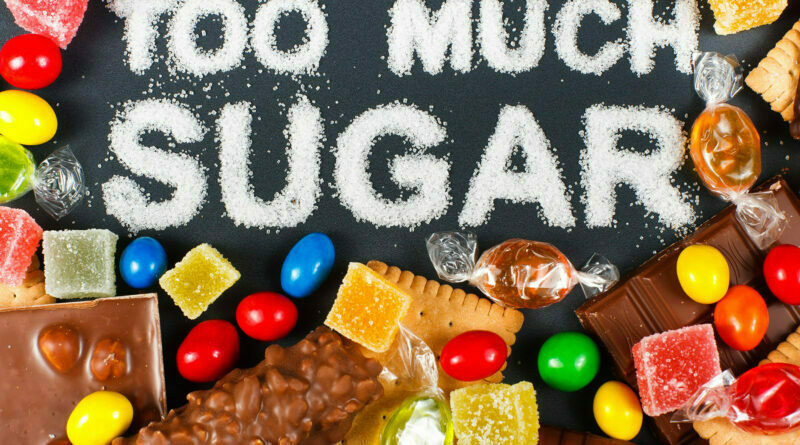The Shocking Truth About Sugar: Why It’s the Enemy of Your Diet
Sugar has always had an image problem, but the truth about why it’s the enemy of your diet is far more disturbing than you might have imagined. Sugar has already been linked to heart disease, diabetes, and obesity—but sugar could also be the source of harmful effects that you haven’t even thought of yet! In this article, you’ll discover why sugar could have negative health consequences that are so extreme that they could even lead to death! If you’re as shocked by this information as I was, then you definitely don’t want to miss reading this shocking truth about sugar!
There are a few ‘good’ sugars

The natural sugars found in fruits and vegetables are actually good for you. They provide your body with essential nutrients and vitamins. However, the ‘bad’ sugars are the ones added to processed foods. These added sugars have no nutritional value and can actually be harmful to your health. Consuming too much sugar can lead to weight gain, tooth decay, and even heart disease. So, is sugar really the enemy? The answer is yes! Sugar is not just bad for your diet, it can be bad for your overall health. That sugary drink or candy bar might seem harmless but it could do more harm than you think! If you’re looking to make healthier choices in the kitchen, reducing or eliminating sugar will be a great place to start. A smart way to make sure you’re staying away from sugar is by reading food labels. When ingredients like brown sugar, corn syrup, high-fructose corn syrup, dextrose, molasses and sucrose appear on the label – that means there are added sugars present in that product.
There are a few bad sugars

The simple answer is yes, sugar is the enemy of your diet. But it’s not as simple as that. You see, there are a few different types of sugar, and each one affects your body in different ways. Let’s take a closer look at the three main types of sugar and how they impact your health. The three most common sugars found in food are glucose, fructose, and sucrose. Glucose comes from carbs like pasta or breads, fructose comes from fruit and veggies (and some soft drinks), while sucrose comes from table sugar and high-fructose corn syrup. Sucrose is typically used to sweeten coffee or tea but can also be found in sauces or dressings.
Glucose can cause spikes in blood sugar levels that can lead to diabetes over time when consumed too often or without exercise. Fructose may be linked to weight gain, cardiovascular disease, type 2 diabetes, and metabolic syndrome. Finally, even though sucrose isn’t as harmful as other sugars on its own; the problem is that people tend to consume way more than what their bodies need so it eventually leads to an increase in calories which then leads to weight gain which then leads to all those other health problems listed above.
Good sugars (Erythritol, Stevia)

We all know that too much sugar is bad for our health, but did you know that sugar is actually the enemy of your diet? That’s right, sugar is the number one cause of weight gain and obesity. So how can you reduce your intake of bad sugars? Here are some tips:
1. Cut out sugary drinks like soda and juice.
2. Avoid processed foods like cookies, cakes, and candy.
3. Eat more fruits and vegetables.
4. Limit your intake of honey, syrup, and molasses.
5. Use artificial sweeteners sparingly.
6. Avoid high-fructose corn syrup5 which is often found in cereal and baked goods.
7. Read food labels to find hidden sources of sugar such as maltose, glucose, sucrose, dextrose, sorbitol, and maltodextrin which are usually found in processed foods like breads or sauces.
8. Make sure you’re reading food labels to avoid hidden sources of sugar (often found in breads or sauces).
Bad sugars (Fructose, Lactose, Glucose, Maltose)
Is sugar really the enemy? Let’s take a closer look. Four main types of sugar include fructose, lactose, glucose, and maltose. Fructose is found in fruits and honey, while lactose is found in milk and dairy products. Glucose is found in starchy foods like bread and pasta, while maltose is found in beer and some processed foods. The truth is that each type of sugar has its benefits and can be consumed responsibly to not wreak havoc on your diet.
Fruit sugars (fructose) contain fiber which help slow down digestion and helps keep you full for longer periods of time; this also means you’ll be less likely to overeat fruit sugars because they’re so satisfying. Dairy sugars (lactose) may be harder to digest than other types of sugar, but they do provide calcium and protein which can help maintain muscle mass and bone density. Starch sugars (glucose) don’t seem to cause as many spikes in blood sugar levels as refined sugars, but remember that eating too many starchy carbs can lead to weight gain since these are turned into stored fat by our bodies more easily than fats or proteins.
How to reduce your intake of bad sugars?

We all know that too much sugar is bad for our health, but did you know that sugar is actually the enemy of your diet? That’s right, sugar is the number one cause of weight gain and obesity. So how can you reduce your intake of bad sugars? Here are some tips:
1. Cut out sugary drinks like soda and juice. Instead, drink water or unsweetened tea.
2. Avoid processed foods like cookies, cakes, and candy. Stick to whole foods like fruits, vegetables, and whole grains.
3. Don’t add sugar to your coffee or cereal. If you need a little sweetness, use a natural sweetener like honey or stevia.
4. Choose dark chocolate instead of milk chocolate. Dark chocolate has less sugar and fat than milk chocolate, so it’ll satisfy your craving without breaking your diet.
5. Eat fresh fruit instead of fruit juices. Fruit juices are full of added sugars so it might be better for you to eat the fruit itself rather than drinking it as a juice.
6. Be aware of hidden sugars in foods that seem healthy like yogurt and granola bars (most yogurts have added sugar).
7. Drink green tea instead of black tea because black tea has more caffeine which can lead to increased calorie consumption.
Here’s how to use good sugars while cutting out bad ones.
1. Keep a stash of healthy snacks with you at all times. This way, when you start to feel a craving coming on, you can reach for something that will satisfy your hunger without all the sugar.
2. Drink lots of water. Sometimes we think we’re hungry when we’re really just thirsty. So before you give in to that sugary snack, have a glass of water and see if that takes care of the craving.
3. Get some exercise. Exercise is a great way to boost your mood and fight off cravings. Taking a quick walk or doing some jumping jacks can help you resist the urge to indulge in sugar.
4. Distract yourself with something else.
Ways to avoid giving into cravings when you’re trying to cut down on sugar

1. Cut out all processed foods from your diet. This includes anything with added sugar, as well as white flour and other refined carbs.
2. Find healthy substitutes for sugary foods. For example, instead of candy bars, keep a stash of dark chocolate or fruit leathers in your desk drawer at work.
3. Don’t keep tempting foods in the house. If you know you can’t resist a pint of ice cream in the freezer, don’t buy it in the first place!
4. When you do indulge, make it count. Choose quality over quantity, and savor every bite slowly. Sweets can go a long way.5. Get plenty of sleep and exercise.




